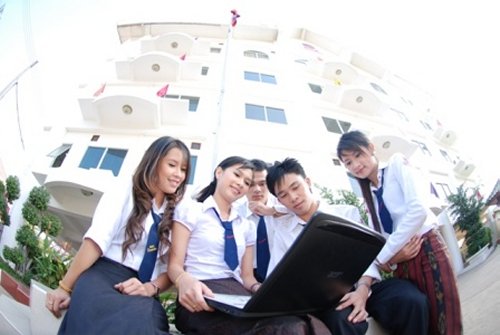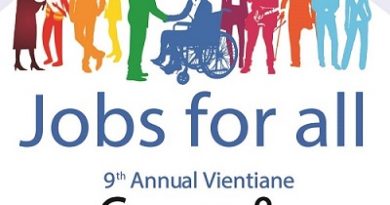Degree Courses to Resume Again
The Ministry of Education and Sports has indicated that it will allow 24 qualified institutions to resume their bachelor degree courses for the 2015-2016 academic year after they met the standards set by the ministry.
A senior official at the ministry said the move was foreshadowed after the two-day annual National Education Administrators Meeting which ended this week, saying “Those selected come from a total of 101 institutions that have been evaluated by the ministry since the 2013-2014 academic year.”
However, the official announcement by the ministry is not scheduled to take place until early next month, according to the official concerned.
The institutions that are expected to resume their bachelor degree courses this academic year are as follows:
-The National University of Laos’ seven faculties of engineering; economics and business management; education; forestry; agriculture; social science; law and political science
 |
| Rattana Business Administration College is one of the institutions that will be permitted to resume its bachelor degree courses. –Photo Phetphoxay |
-Two state institutions: Dongkhamxang Institute of Economics and Finance and the Banking Institute
-11 private colleges in Vientiane: Rattana Business Administration College; Comcenter College; Bouthviset College; Settha Business Administration College; Sengsavanh College; Souksavath College; Lao-American College; Soutsaka College of Management and Technology; Mixay Finance College; Setthakit Xayphattana College; and Quest College
-Two private colleges in Savannakhet province: Xaysombat Technology College and Savan Business Administration College
– A private college in Champassak province, namely Phonsavanh College
-One teacher training college, namely Champassak Teacher Training College.
Meanwhile those institutions and colleges that don’t meet the standards set by the ministry will not be able to offer degree programmes until they are judged to have improved.
A senior official from the ministry said the biggest problem facing the institutions was the lack of sufficiently qualified teaching staff.
Another issue was that some institutions were using misleading promotional material such as suggesting they had certain staff members with particular qualifications only for students to find out that these individuals were no longer present.
“Improving the standards and quality of these institutions is part of the ministry’s national education reform initiative, encouraging them to meet the current standards of the Asean region,” he said, adding “The selection and recruitment, allocation, retention and continuous professional development of teaching and support staff are of paramount importance to every higher education institution.”
To facilitate success in this regard, the teaching staff must have appropriate qualifications, ethics, relevant knowledge and capacity, a sense of accountability as a teacher and, preferably, teaching experience.
Any institutions that do not meet the ministry’s standards will be given a chance to improve until they can meet the requirements.
While they have 10 standards and 50 indicators they expect the institutions to achieve, officials are prepared to tolerate minor failings provided at least seven standards and about 35 indicators have been fully satisfied.
The ministry has evaluated its review of over 100 institutions after beginning assessments in the 2013-2014 academic year, according to a recent report from the ministry.
Source: Vientiane Times


